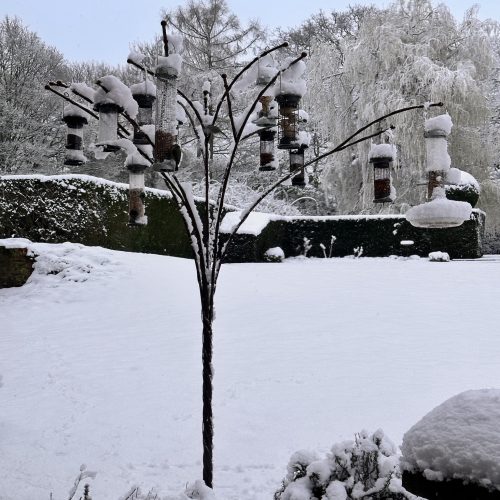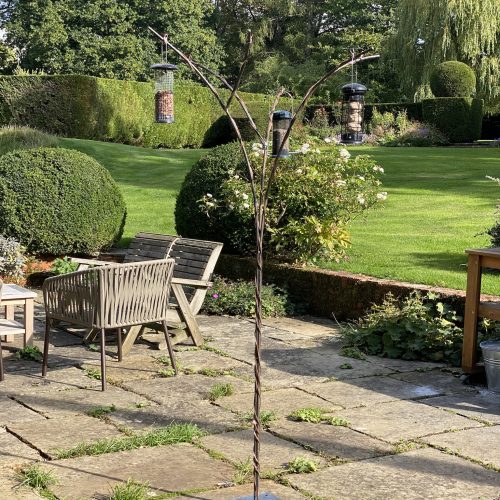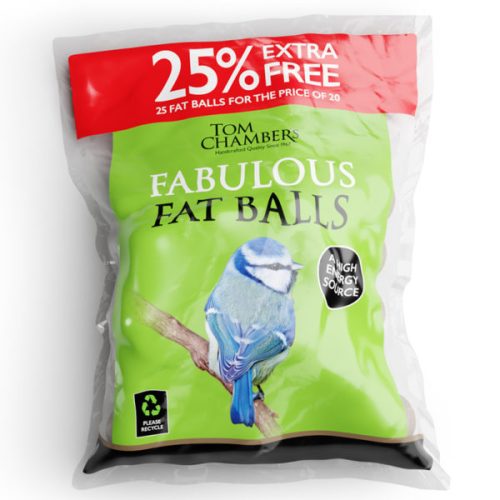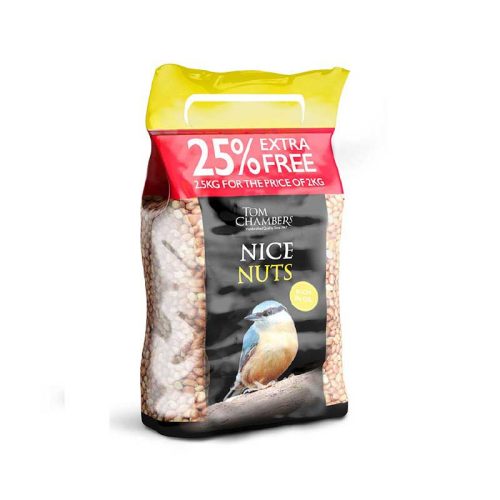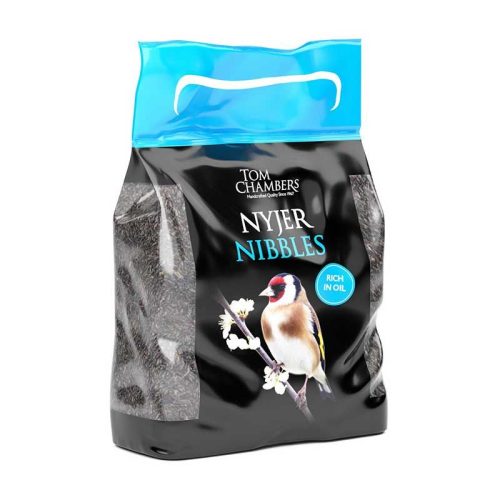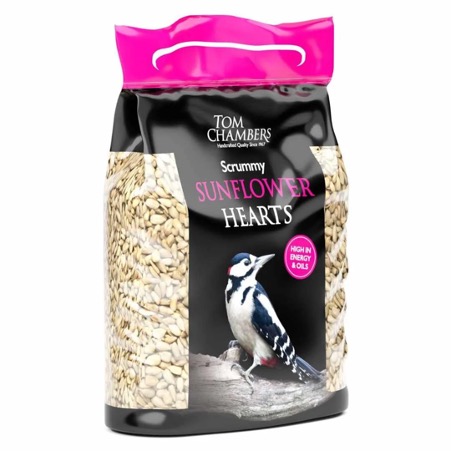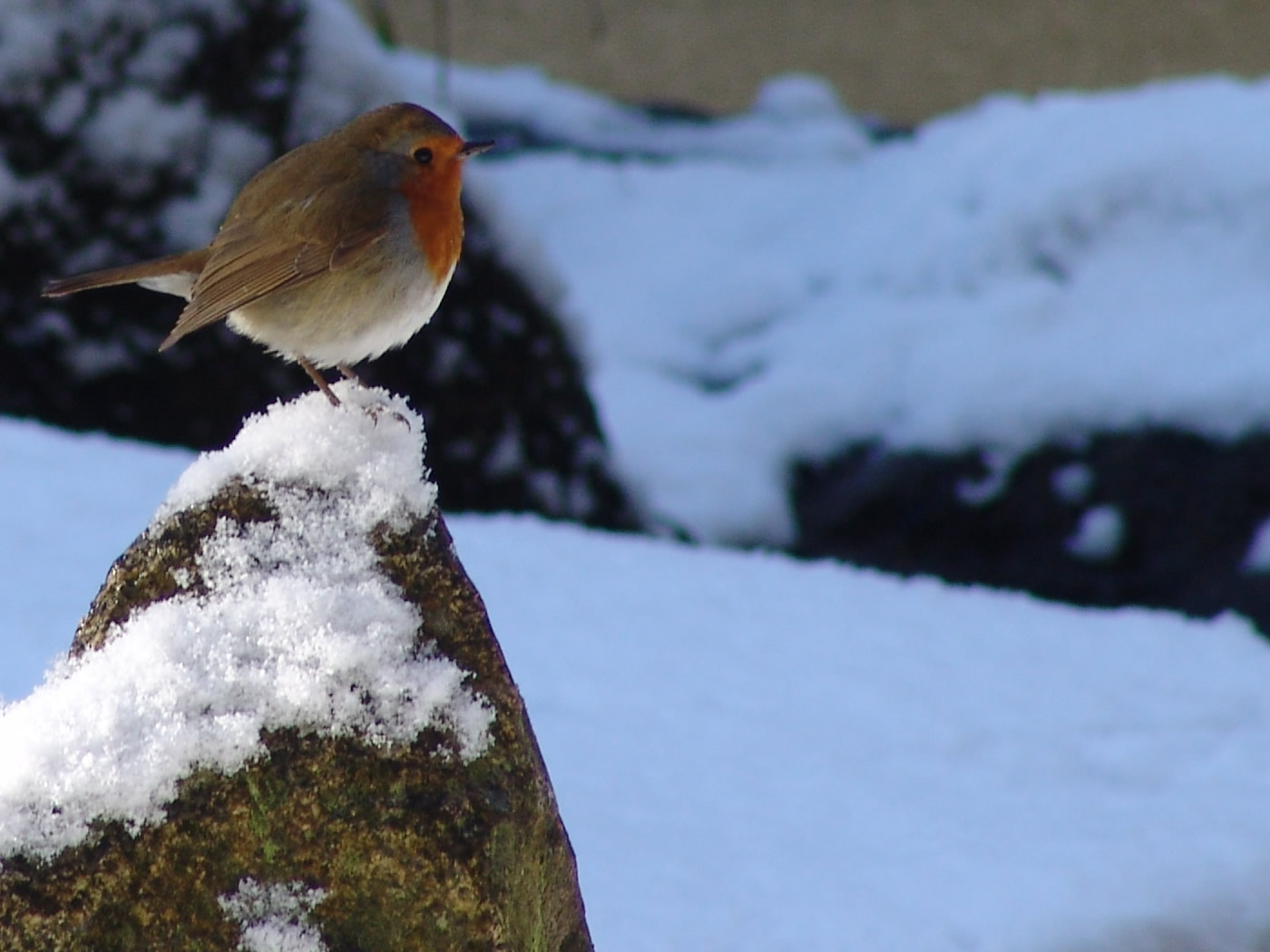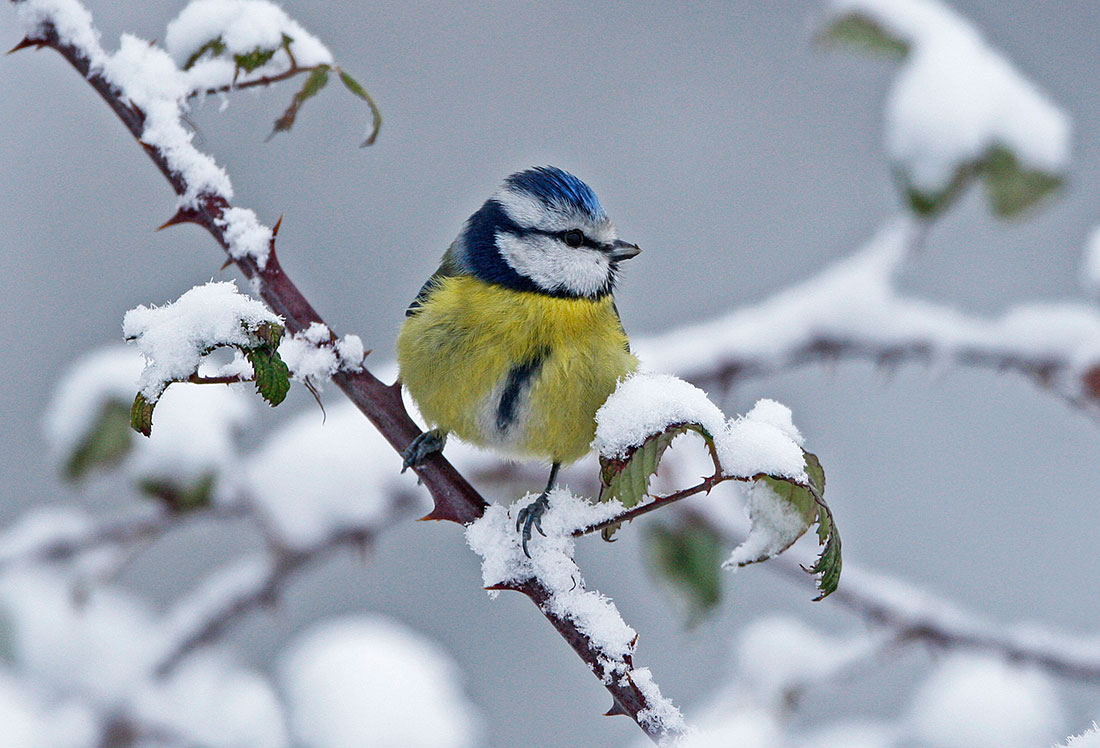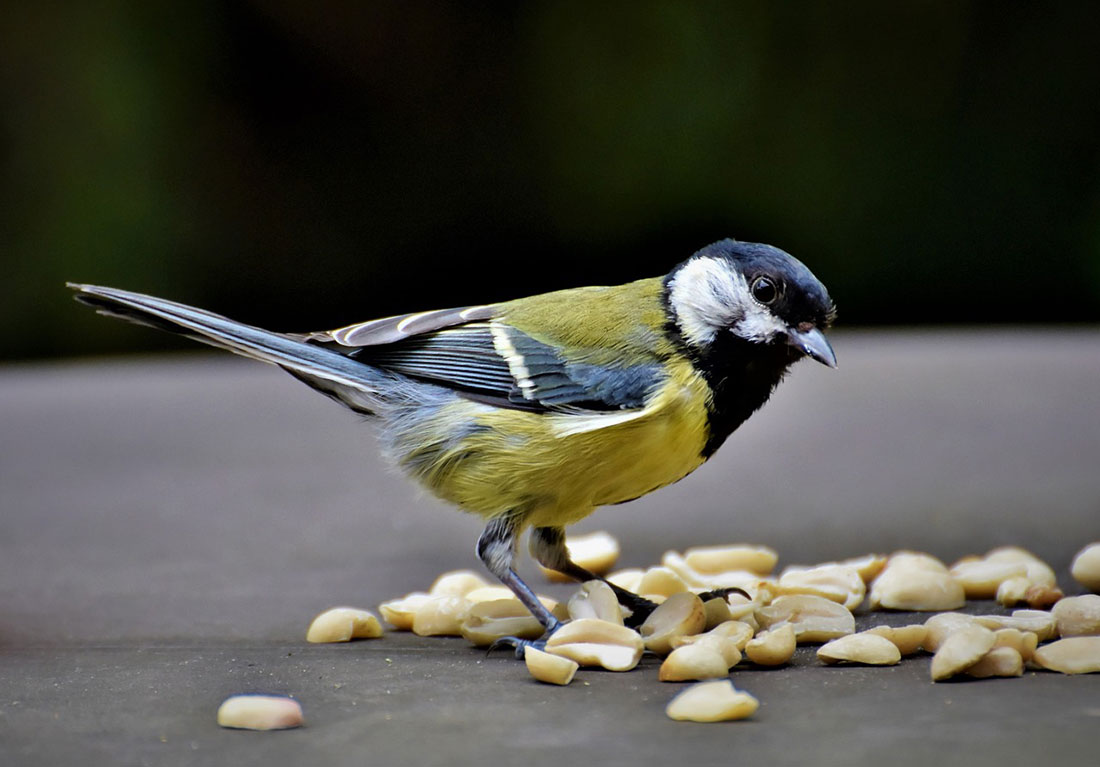
Should You Feed Birds In The Summer?
Should you feed birds in the summer? This is a question that is much debated especially amongst my mum’s generation but in a nutshell (and according to the RSPB) the answer is YES! So hooray! There’s no need to stop feeding birds in the summer. We get to play chef all year long! But just like with humans we should vary the food with the seasons but I will get to that in a bit.
The answer “yes!” might come as a surprise to some because you are right, in the summer months there is much more natural food around in the form of bugs, insects, seeds and worms than in the winter, but sometimes finding enough to eat from these natural sources can get tricky especially when it’s hot and dry. There are also MANY more mouths to feed – think of all those babies!
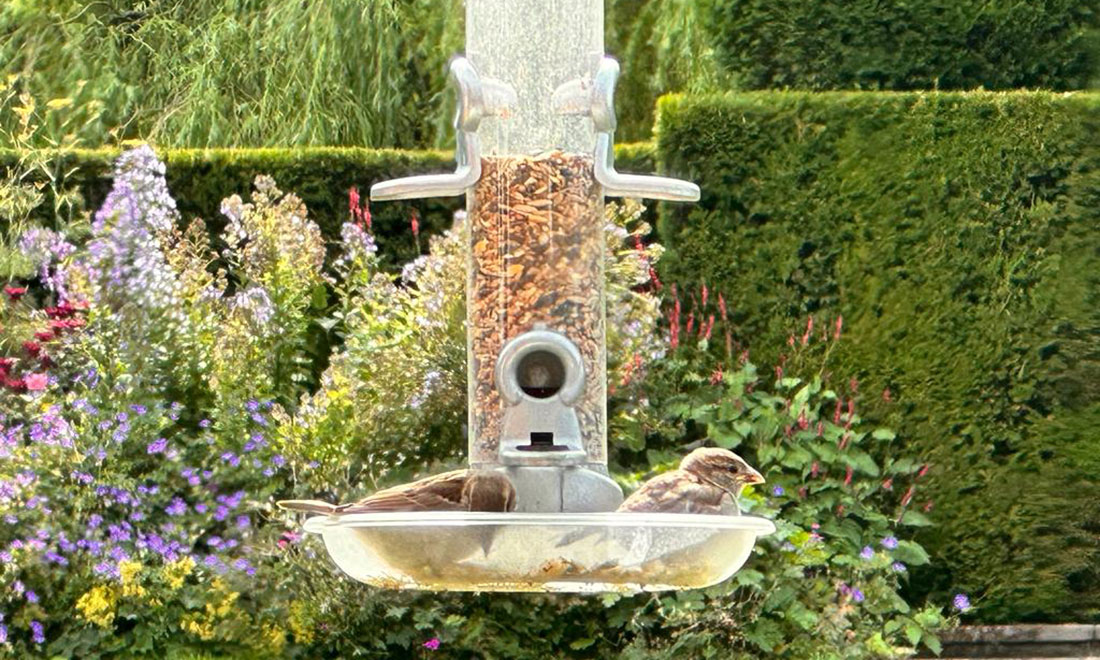 Wild birds tend to breed at a time when their natural food source is plentiful and they tend to forage for and offer their young food found from these natural sources but when it is their turn to eat they love to come to our table. You can imagine that when our wild birds have a nest full of open mouths that need filling they are very very busy and being able to easily feed themselves can make all the difference.
Wild birds tend to breed at a time when their natural food source is plentiful and they tend to forage for and offer their young food found from these natural sources but when it is their turn to eat they love to come to our table. You can imagine that when our wild birds have a nest full of open mouths that need filling they are very very busy and being able to easily feed themselves can make all the difference.
Ground feeders like blackbirds love to eat worms but these worms burrow deeper when it’s dry and the birds aren’t able to penetrate the hard turf and soil to get at them. And robins who love to eat beetles and other creepy crawlies have a tough time because their natural food tends to keep a very low profile and hide away. Also, they might not be quite so plentiful if water is scarce.
I read on the British Trust for Ornithology’s Blue Tit diary that blue tits LOVE caterpillars and one baby can eat up to 100 a day. And guess what, they have maybe 10 or 12 babies, so that’s over 1000 caterpillars they need to find every day! No wonder being able to visit a bird feeder tree like ELIZABETH or PENELOPE becomes a welcome reprieve. Feeding a nest full of baby birds sounds exhausting!
The effect of insecticides is far-reaching and so bugs and insects aren’t quite as plentiful as they were back in the day. I only have to think back to the state of my windscreen when driving in the summer when I was in my teens compared to today. Having said that I have noticed an increase which is great news for insects but we can still help our wild birds by offering appropriate food and feeding them all year round including the summer months.
Birds also moult during the warmer months and this process of shedding old tired feathers and regrowing lovely new ones ready for winter is a high energy job that can take place before and after breeding! Birds need more food at this time so feeding them and offering additional sources of protein and “good” fats is really helpful. Remember that their flight feathers are also affected so offering food on the ground is really helpful for some species.
The only real and very important reason not to feed wild birds in the summer is to prevent the spread of disease. When feeding birds I cannot emphasise strongly enough how important it is that you keep your feeders and surrounding areas clean to avoid spreading illness. Spray and wipe feeders with a 10% bleach solution, rinse well and dry every few fillings. Once or twice per season, take them down and give them a full wash with hot water and soap, or run them through the dishwasher. Also, be sure to sweep up (or mow up!) the husks and dropped seeds every couple of weeks or so.
So let’s talk diet and how we can help!
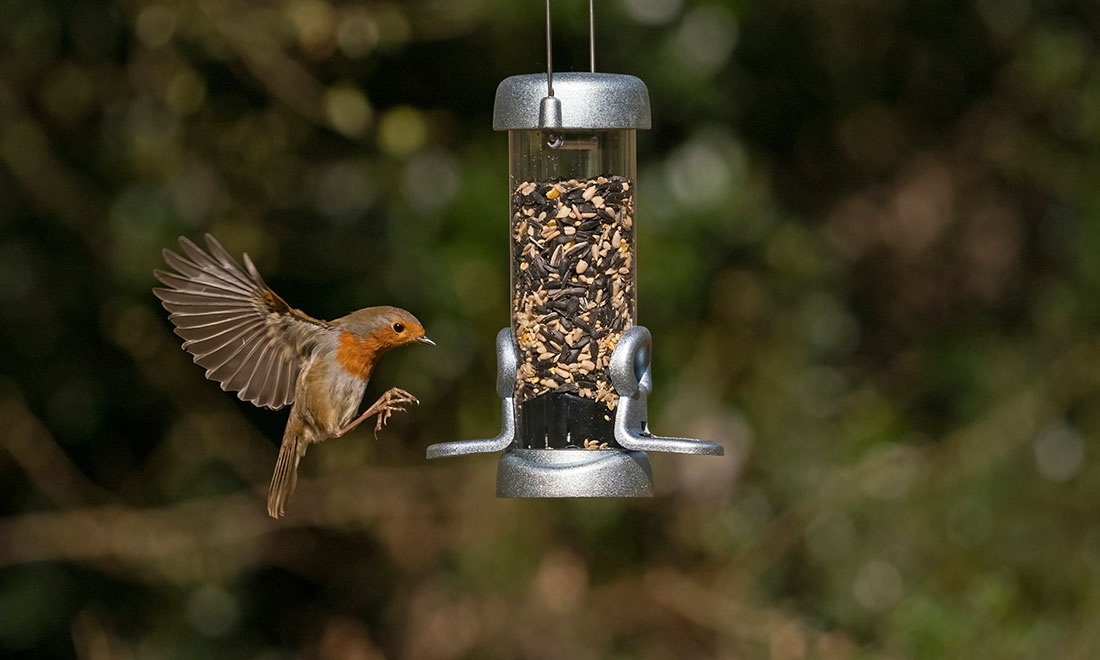
What to feed wild garden birds
Just like humans, birds need a healthy balanced diet made up of different types of foods. The added bonus of offering variety is that you can attract different types of birds which are so much fun to see. It’s also good to make sure the food is in small pieces, so birds – especially chicks – don’t choke. The types of food can be split into 4 rough categories:
Seeds and Grains
These are helpful all year round and are a mainstay for most wild birds. Try to avoid mixes with too much wheat and barley. Most wild garden birds probably won’t even eat it and will flick it on the ground in search of tastier morsels. However, it will be picked up by doves, pigeons and pheasants. Millet, pinhead oatmeal, red dari and flaked maize are very popular for attracting wild birds. The Classic Seed Blend we sell from Tom Chambers gets 5 star reviews and I can attest to the fact that our wild birds, including the pheasants, love it!
If you are a keen gardener, you might like the “no-grow” seeds, which have been roasted, cracked, or ground so that they don’t germinate in borders or lawns. Gardener’s World recommends CJ Wildlife’s National Trust Hi-Energy No Mess seed mix which comprises of sunflower hearts, kibbled sunflower hearts, kibbled peanuts, yellow millet, kibbled maize and pinhead oatmeal.
Johnson & Jeff the avian nutritionists create great blends and their No Mess, No Grow Wild Bird Food sounds delicious! Composition: Germi-NOT™ Wheat, Germi-NOT™ Red Dari, split maize, sunflower hearts, pinhead oatmeal, flaked naked oats, berry suet pellets, and peanut granules.
Nuts and Seeds
High-energy, high-protein food like nuts, sunflower hearts, nyger seed are completely vital in winter and during the nest building and moulting seasons. Proteins are imperative for helping birds build and maintain crucial muscle mass and body fat.
Fats can be found in nuts and seeds but also from suet and lard which are both extremely beneficial in the winter months. Offering fat balls is a great way to combine the two but don’t offer them in the summer because the fat becomes rancid and goes off very quickly. It melts too!
Fresh coconut is a favourite with tits but make sure you drain and wash off the ‘milk’ first to prevent mould. See the DONT’s below for why not to offer desiccated coconut.
Insects
British birds are largely omnivorous and love eating insects! You can offer dried or roasted mealworms which are easy to find but you can also give them waxworms, earthworms, and crickets too. These are all fantastic unprocessed food sources but they can be a little more expensive. Some say you should offer live mealworms rather than dried ones but these have to be stored in the fridge, fed and hydrated and personally with 4 sons and a hungry husband to feed I don’t have enough room in my fridge!
Berries and Fruit
Birds and berries have a symbiotic relationship; berries give birds vital nutrients and vitamins, and birds excrete berry seeds so new shrubs and trees can grow. In areas without shrubbery or hedgerows, birds can miss out on this crucial part of their diet, so berries should be a mainstay of a good bird food. Mixed bird foods that include dried berries particularly suit robins, sparrows, and thrushes in late summer and autumn.
Windfall fruit is a great offering such as apples and pears. You can also feed wild birds with sultanas and raisins but these need to be soaked and rehydrated first.
A less direct way to feed birds is in your gardening itself. Plants offer a fantastic opportunity to provide natural wild bird food as part of your wider garden design. Sunflowers and their seeds are a great source of protein, and holly and blackthorn provide invaluable berries year-round. And birds love Rowan berries – no wonder my mum has so many.
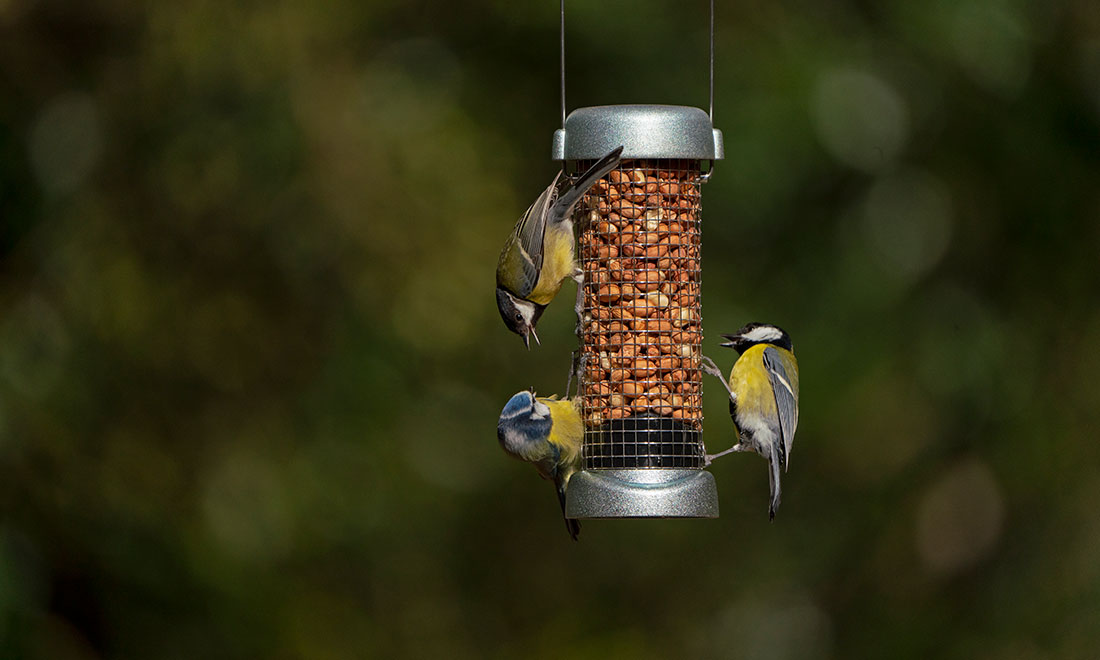
What NOT to feed wild birds
Although some food from our kitchens is fine to give to birds, some should definitely be avoided:
- Don’t feed birds big chunks of anything, because they can choke on the pieces, especially in the summer when there are babies around. Put them in a feeder or you could chop them up yourself to make it possible for them to eat.
- AVOID junk food like crisps or biscuits because they contain dangerous additives, have very little nutritional value and are also a choking hazard.
- AVOID salty food such as bacon rind which is also potentially hazardous – birds can’t process the high levels of salt in human food. So while birds love peanuts do NOT offer salted ones, use plain, unseasoned ones.
- AVOID milk because this causes gut problems in birds and although some can eat fermented dairy – robins love mild grated cheddar – it’s best to err on the side of caution and avoid dairy products.
- AVOID chocolate which is toxic for birds although they do find it hard to resist so don’t give them the option.
- AVOID desiccated coconut which swells in their gut.
- AVOID cooked oats because these stick and harden on and around their beaks. Raw oats are great though.
- AVOID cooking fat, vegetable oils and polyunsaturated margarines.
- AVOID avocado.
- BREAD should be wholegrain only and soaked in water but to be honest it doesn’t hold much nutritional content so there are better foods to offer that help birds sustain their busy lifestyles!
- MOULDY food can make birds ill just as it does to humans so clean out your bird feeder every few days to make sure food hasn’t gone off. This is especially important if you live in a city, or near water, as this food could attract rats.
Make sure to store your bird food somewhere dry and protected.
SO in short! It’s more than OK to feed birds in summer so long as you avoid suet and lard. But if you have any questions at all then please get in touch. And take a look at PENELOPE our small feeder tree and the bird feed that we sell.

